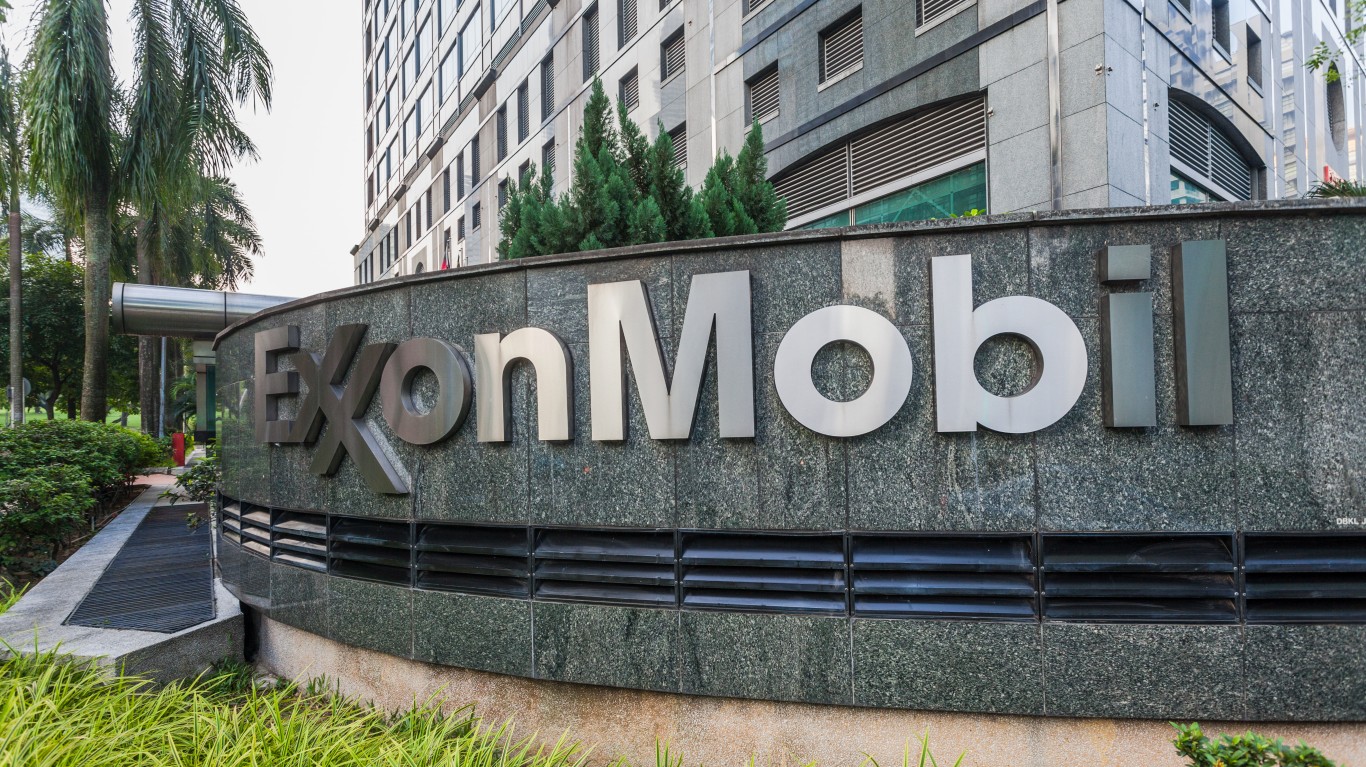
It takes a certain kind of courage to short sell blue chips, such as the Dow Jones industrial average components. Short sellers are betting on these companies to fail, or at least for their share prices to fall handily. Plus, those sellers are responsible for paying the dividends on the stocks they short.
Maybe it is little surprise that only two of the 30 Dow stocks had sizable short interest between April 30 and May 15; that is, more than 50 million shares short. A third of the index’s components had short interest of more than 25 million shares.
While employment and other economic numbers looked grim, and the question of how to reopen and revive the economy as the pandemic drags on is hotly debated, the stock market has recovered much of its panic-selling losses from March. Investors still trying to figure out what to do next may wonder what the short sellers expected from some of the biggest, most well-respected names on Wall Street. Did they anticipate the lows would be retested?
As of the mid-month settlement date, the most recently reported period, short sellers still favored Exxon Mobil Corp. (NYSE: XOM), Pfizer Inc. (NYSE: PFE) and Microsoft Corp. (NASDAQ: MSFT) above all other Dow stocks.
Exxon
> Shares short: around 59.70 million
> Change from prior period: 1.5%
> Percentage of float: 1.4
Short seller interest resumed in the most recent period, and the oil supermajor remained the most shorted Dow stock in the first half of this month. Not that long ago, Exxon had hovered around the number five spot on the list for a bit before floating up to the surface. At the average daily volume on the latest settlement date, the days to cover figure was less than two.
Exxon posted mixed first-quarter results due to the pandemic weighing on global oil demand and creating oversupply. Short sellers saw the share price end the period more than 9% lower, though it had been down over 13% at one point. The Dow ended the first two weeks of May in about the same place it started the month.
After rising about 2% the past week, Exxon Mobil stock closed trading most recently at $46.24 a share. That was in a 52-week range of $77.93 (last July) to $30.11 (in March). The most recent share price is more than 41% higher since the year-to-date low in March. That compares to an almost 32% gain in the S&P 500 in that time.
Pfizer
> Shares short: around 52.59 million
> Change from prior period: 7.4%
> Percentage of float: 1.0
This notable bump in Pfizer shares short left the pharmaceutical leader still clinging to the number two spot on the list. It was still well below the year-to-date high of around 61 million shares short seen back in January. At the average daily trading volume on the latest settlement date, it would take investors less than two days to cover their short interest.
The maker of Lipitor, Viagra and Xanax has turned its attention to finding a novel coronavirus vaccine. Its shares ended marginally higher in the initial two weeks of this month, despite being up about 4% early in the period. The S&P 500 rose about 3% during the short interest period.
Pfizer stock closed most recently at $37.42 per share, which is down fractionally from a week ago. The 52-week low of $27.88 was seen in March, and the 52-week high of $44.56 was reached back in July. The shares now trade more than 4% lower than they did at the beginning of the year but are up about 29% from the March low.
Microsoft
> Shares short: more than 44.23 million
> Change from prior period: −7.4%
> Percentage of float: 0.6
Microsoft remained at the number three spot on the list in the first half of May despite the third sizable retreat in a row. Note though that the 52-week low of around 37 million shares back occurred back in February. It would take these investors more than a day to cover their short bets, as of the middle of this month.
Microsoft and its shares were among those that were not only surviving but thriving in the pandemic recession. The shares ended the two weeks trading more than 3% higher, even though they were up more than 6% earlier in the period. The Nasdaq saw a gain of over 5% during the short interest period, which was better than the performance of the Dow and the S&P 500.
Microsoft stock was last seen trading at $181.81 a share, down from the multiyear high of $190.70 reached in February but well above the 52-week low of $119.01 seen last June. The latest share price is about 32% higher than the low during the pandemic sell-off in March, while the Nasdaq is up almost 37% in that time.
And the Rest
Rounding out the top five most shorted Dow stocks on the most recent settlement date were Intel Corp. (NASDAQ: INTC) and Cisco Systems Inc. (NYSE: CSCO). Both tech giants saw the number of their shares short rise this month. Intel stock ended the period less than 2% lower, as the company continues to face fierce competition. Cisco’s share price was up more than 4% by mid-month. The company posted better than expected fiscal third-quarter results earlier this month.
Note on the following list of short interest changes in Dow stocks as of May 15 the surges in Apple, IBM, 3M and Walgreens.
| Dow Stock | Short (millions) | Change | % Float |
|---|---|---|---|
| Exxon | 59.70 | 1.48% | 1.41% |
| Pfizer | 52.59 | 7.41% | 0.95% |
| Microsoft | 44.24 | −7.38% | 0.59% |
| Intel | 37.80 | 6.02% | 0.89% |
| Cisco | 34.59 | 0.51% | 0.82% |
| Apple | 33.59 | 11.51% | 0.78% |
| Visa | 32.20 | 3.25% | 1.91% |
| Verizon | 30.70 | −4.42% | 0.74% |
| Coca-Cola | 29.22 | 4.84% | 0.69% |
| Disney | 25.24 | 6.00% | 1.40% |
| JPMorgan | 24.81 | 3.01% | 0.82% |
| IBM | 21.51 | 12.22% | 2.43% |
| Chevron | 21.33 | −6.26% | 1.14% |
| Walgreens | 20.86 | 24.88% | 2.86% |
| Merck | 18.99 | 0.52% | 0.75% |
| Procter & Gamble | 18.71 | 9.05% | 0.76% |
| Dow | 17.98 | 6.91% | 2.43% |
| Boeing | 17.57 | −2.36% | 3.15% |
| Johnson & Johnson | 16.28 | −3.28% | 0.62% |
| Raytheon Technologies | 15.80 | −13.10% | 1.83% |
| Walmart | 15.32 | 6.39% | 1.10% |
| Nike | 11.43 | −3.02% | 0.95% |
| American Express | 11.34 | −4.82% | 1.41% |
| Home Depot | 10.25 | −4.74% | 0.96% |
| Caterpillar | 9.24 | 7.96% | 1.71% |
| 3M | 8.29 | 27.52% | 1.44% |
| McDonald’s | 7.27 | −8.92% | 0.98% |
| Goldman Sachs | 6.50 | 4.25% | 1.97% |
| UnitedHealth | 5.98 | −13.40% | 0.62% |
| Travelers | 4.86 | 9.79% | 1.93% |
The #1 Thing to Do Before You Claim Social Security (Sponsor)
Choosing the right (or wrong) time to claim Social Security can dramatically change your retirement. So, before making one of the biggest decisions of your financial life, it’s a smart idea to get an extra set of eyes on your complete financial situation.
A financial advisor can help you decide the right Social Security option for you and your family. Finding a qualified financial advisor doesn’t have to be hard. SmartAsset’s free tool matches you with up to three financial advisors who serve your area, and you can interview your advisor matches at no cost to decide which one is right for you.
Click here to match with up to 3 financial pros who would be excited to help you optimize your Social Security outcomes.
Have questions about retirement or personal finance? Email us at [email protected]!
By emailing your questions to 24/7 Wall St., you agree to have them published anonymously on a673b.bigscoots-temp.com.
By submitting your story, you understand and agree that we may use your story, or versions of it, in all media and platforms, including via third parties.
Thank you for reading! Have some feedback for us?
Contact the 24/7 Wall St. editorial team.
 24/7 Wall St.
24/7 Wall St.


